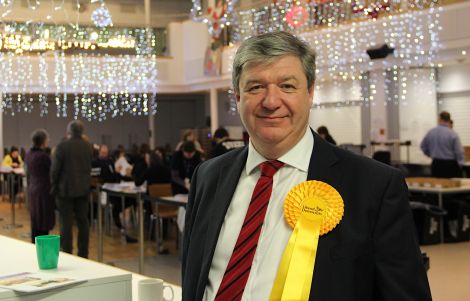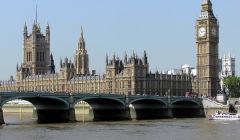Viewpoint / Election result a ‘disaster for country and community alike’
MANY in Shetland will surely share the view that Boris Johnson’s decisive election victory – after a campaign in which he ducked debates, eschewed interviews, swerved scrutiny and told untruths virtually every time he opened his mouth – is a disaster for country and community alike, writes Neil Riddell.
He succeeded in nullifying the Brexit Party by pandering to the far right, earning the endorsement of Tommy Robinson and the qualified approval of Nigel Farage and ratifying their ugly brand of foreigner-bashing English nationalism, but losing the backing of Conservative party grandees such as Lord Heseltine, Ken Clarke and John Major.
While Labour certainly bears its share of the blame for this result, it is lamentable that so many in England allowed themselves to be blindsided by the tissue of lies Johnson and his party unveiled over the past six weeks.
Precisely how a man who penned competing columns both for and against Brexit chooses to govern is anyone’s guess.
We do know that his journalistic output revealed him to be a bigot who has levelled demeaning slurs against blacks, Muslims, gay people, single mums, low earners and the homeless. A “one nation” Conservative? It seems preposterous to envisage this old Etonian, self-styled buffoon governing for the many not the few.
His Brexit deal encompasses leaving the single market and the customs union. While it seems certain we will now leave the EU in January, the prospect of any transition period ending by December 2020 seems utterly fanciful.
While the fishing industry locally pleads for a better deal for our fleet, noises emanating from Brussels suggest continued access for EU fleets to British waters will feature among member states’ red line issues. Perhaps even more critical for that industry will be striking a trade deal that maintains unconstrained access to continental markets for seafood exports.
Become a member of Shetland News
Having held onto his seat relatively comfortably, confounding an exit poll’s scarcely believable projection, Northern Isles MP Alistair Carmichael’s main task will be to continue the fight against a hard Brexit.
He says he will not seek the party’s leadership following Jo Swinson’s ousting after a campaign in which the Lib Dems’ policy of overturning Brexit without a second referendum proved to be a disastrous miscalculation.
With 48 SNP MPs out of 59 seats, Carmichael will return to Westminster as one of 11 pro-union Scottish MPs. While that is a significant under-representation, the SNP’s ascendancy has endured beyond a decade and its mandate is more solid than the Tories’ mandate in England, let alone the UK.
Every time Johnson robotically repeated his facile ‘get Brexit done and move on’ mantra he was selling the British people a pup. Actually getting Brexit done on his terms is likely to take years, not months, and negotiations will proceed in tandem with constitutional havoc in Scotland and quite possibly Ireland too.
As was the case in 2014, an opportunity may present itself for Shetland (and Orkney if it wishes) to seek greater political autonomy. But such a campaign would only make sense if it also respects Scotland’s very clear will to seek a different political path to the rest of the UK – whether that involves outright independence or not – rather than seek to obstruct it.
Carmichael will undoubtedly continue to oppose independence, keeping step with the majority of his constituents’ wishes. But is it possible for the MP to subtly adjust tone in recognition of the extent to which the politics of Boris Johnson’s party are anathema to islanders?
In the continued absence of reform to the UK’s hopeless electoral system, some kind of radical alternative settlement is desperately required if we are to build a more caring, socially just and environmentally responsible society.
Genuinely progressive politicians in Scotland who do not see independence as the answer must spell out how else we can fight back against a Johnson government backed by an army of cheerleaders in the UK media.
The decidedly gloomy mood music coming out of Sullom Voe Terminal, the slowdown since Total’s gas plant was completed and what we must now assume will be a continued squeeze on public spending present a severe challenge for Shetland’s economy.
Luckily, we do still have an oil fund to call upon. It was put in place for rainy days, and in light of Thursday’s election result SIC councillors may wish to reflect even more urgently upon whether a rainy season may be fast approaching.
Nevertheless, any post-Brexit aftershock could be crippling, and the UK status quo – with Johnson’s lying Tories in charge – seems bound to serve these islands ill.
Become a member of Shetland News
Shetland News is asking its many readers to consider paying for membership to get additional features and services: -
- Remove non-local ads;
- Bookmark posts to read later;
- Exclusive curated weekly newsletter;
- Hide membership messages;
- Comments open for discussion.
If you appreciate what we do and feel strongly about impartial local journalism, then please become a member of Shetland News by either making a single payment, or setting up a monthly, quarterly or yearly subscription.

















































































